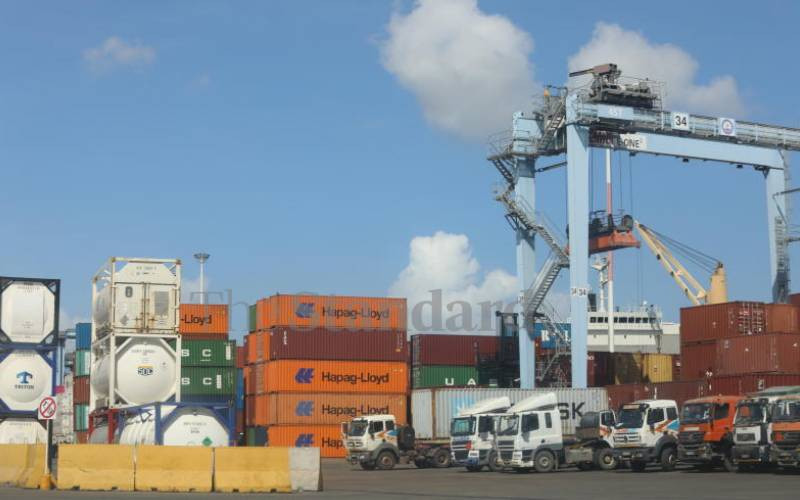
The East Africa Community (EAC) has stepped up efforts to eliminate non-tariff barriers (NTB) and protectionism impeding cross-border trade in the region.
This is according to EAC Secretary General Peter Mathuki, who said that seven outstanding NTBs continue to be a stumbling to trade between the member states.
NTB are trade obstacles that restrict the import or export of goods and cross-border movement of people.
In his annual State of the EAC Address in Arusha, Tanzania, Dr. Mathuki said 26 NTBs out of the 33 that had been reported as of June 2023 have been resolved.
He said talks on the outstanding seven were at different levels of resolution.
“Partner states have continued to eliminate NTBs as they arise. They have cumulatively eliminated a significant number of 184 NTBs with only a few remaining outstanding."
Mathuki said EAC's total trade increased by 13.4 per cent to $74.1 billion (Sh10.6 trillion) in 2022 from $65.3 billion (Sh9.4 trillion) in 2021.
Intra-EAC trade grew by 11.2 per cent to $10.9 billion (Sh1.57 trillion) in 2022 from $9.8 billion (Sh1.413 trillion) in 2021.
The portion of intra-EAC trade to EAC total trade stood at 15 per cent in 2022, and 2023 has indicated a positive trend with 16 per cent in January and 19 per cent in February recorded of total EAC trade.
The secretary-general said the implementation of the Single Customs Territory has seen a reduction in the turn-around time from an average of 21 days to four days along the EAC corridors.
“The average transit time from the main EAC ports of entry (Dar es Salaam and Mombasa) to the exit borders reduced from 86.16 hours (3.59 days) to 81.84 hours (3.2 days) in 2022."
He added that a comprehensive review of the EAC Customs Management Act, 2004 was also finalised to enhance the operations of the Single Customs Territory.
Five of the seven EAC partner states had commenced issuance of the EA e-Passport to facilitate the free movement across the larger EAC block.
“To facilitate the free movement of services, the Community adopted and is implementing a Mechanism for Removal of Restrictions in trade in services to identify and monitor the removal of restrictions in service sectors,” said Mathuki.
To facilitate the right of establishment, the bloc adopted and is implementing the EAC Private Sector Development Strategy to catalyse investment and business promotion in the region.
“In July 2022, EAC Heads of State convened in Arusha and discussed the progress made in implementing the Common Market Protocol and identified areas that need to be prioritised to ensure that the Common Market is fully operational; namely, the One Network Area and an Open Skies policy,” Mathuki said.
On the Monetary Union Protocol, the secretary general said that in addition to the establishment of the East African Monetary Institute, several Bills have been passed by the East African Legislative Assembly and are currently awaiting assent by EAC Heads of State.
“While the roadmap has 2031 as the year for the adoption of the EAC single currency, we encourage ministers of Finance to urgently reconsider working towards providing a common currency in the next three (3) years,” he said.